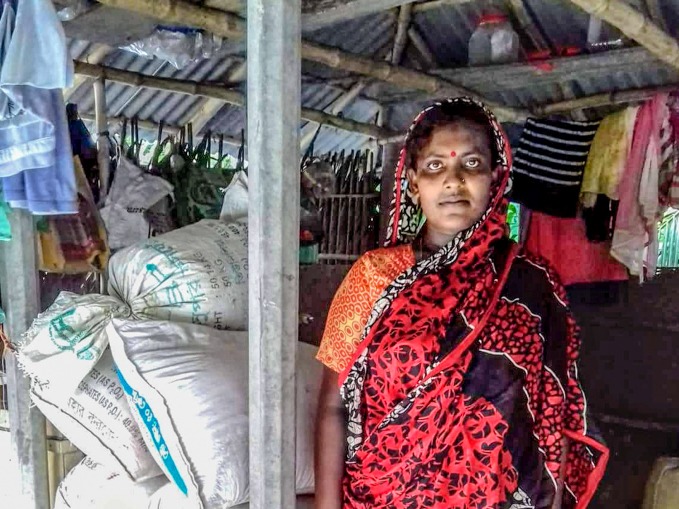
Lipika Mondol, 36, lives in Dacope, a small upazila, or subdistrict, in the Khulna Division of southern Bangladesh. Her family owns no land; instead, they lease about 100 decimals for cultivating Amon rice, which does not earn them enough to survive. As a result, Lipika’s husband often migrates in search of work. This is a growing trend in the area, where communities and their crops are increasingly vulnerable to cyclones and flooding. High soil salinity also makes it challenging for local farmers to grow more than one crop each year.
Sunflower, unlike most crops, thrives in saline conditions. Through a partnership with the Feed the Future Bangladesh Rice and Diversified Crops Activity, MRT Agro is working with smallholder farmers in Khulna to produce sunflower grain, which can be grown during off seasons and processed for nutrient-rich sunflower oil. With the Activity’s support, the company established farmer groups throughout nearby villages and offered technical assistance on how to plant, fertilize, and harvest the crop. Farmers in Dacope had cultivated sunflower before, but without a buyer or market for their crop, they experienced losses. This time, MRT Agro contracted 32 farmers from the area, including Lipika, and ensured buy-back of their sunflower grains at market prices.
“After all the hassles I have faced this year in sunflower production, I’m quite happy with the yield.”–Lipika Mondol, sunflower farmer in the Khulna division
Lipika cultivated 33 decimals of sunflower with technical assistance and high-quality seeds provided by MRT Agro. She did so with the help of her family and often on her own in the absence of her husband.
After investing BDT 1,700 in plowing and fertilizer, Lipika was able to sell 160 kilograms of sunflower grain to MRT Agro and earn BDT 6,400.
So far, MRT Agro has trained 300 sunflower farmers, and 86 of those farmers have sold 4,027 kilograms of their sunflower grain to MRT Agro. Eighty-eight of the contracted farmers also managed to save their crops from natural disasters. Through this market linkage, smallholder farmers living in the Feed the Future Zone, like Lipika, are more connected to buyers in the private sector, improving their earning capacity and food security.








